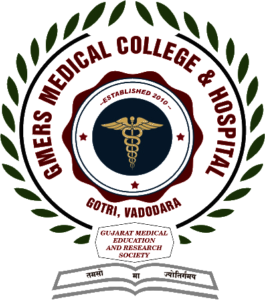Forensic Medicine
Overview
Goals :-
The broad goal of the teaching of undergraduate students in Forensic Medicine is to produce a physician who is well informed about medicolegal responsibilities in practice of medicine. He/She will also be capable of making observations and inferring conclusions by logical deductions to set enquiries on the right track in criminal matters and connected medicolegal problems. He/She acquires knowledge of law in relation to medical practice, medical negligence and respect for codes of medical ethics.
Objectives
At the end of the course in Forensic Medicine, the learner shall be able to:-
- Identify, examine and prepare report or certificate in medico-legal cases/situations in accordance with the law of land.
- Perform medico-legal postmortem examination and interpret autopsy findings and results of other relevant investigations to logically conclude the cause, manner and time since death.
- Be conversant with medical ethics, etiquette, duties, rights, medical negligence and legal responsibilities of the physicians towards patients, profession, society, state and humanity at large.
- Be aware of relevant legal/court procedures applicable to the medicolegal/ medical practice.
- Preserve and dispatch specimens in medico-legal/postmortem cases and other concerned materials to the appropriate Government agencies for necessary examination.
- Manage medico-legal implications, diagnosis and principles of therapy of common poisons.
- Be aware of general principles of environmental, occupational and preventive aspects of toxicology.
Menu
Subject Curriculum
(A)FORENSIC MEDICINE
- Legal procedure and inquests. Criminal, Civil, TADA and POTA courts and their power. Medical evidence, Medico-legal reports, Dying declaration; medical witness and evidence in courts, Consumer. Disputes redressal forum at district and national level (if possible the student should be taken to the courts when the teacture are on the courts duty to introduce them to the element of legal aspects of medicine.)
- Identity of living and dead; Determination of sex, age and their medico-legal aspect; DNA finger printing and superimposition technique for indentification.
- Medico-legal post mortem examination ; related rules and regulation etc….., examination of the decomposed and mutilated bodies, fragment and bone examination. Exhumation.
- Examination of blood stains, saliva and seminal stains, hair, weapon and clothes etc. Role of forensic science laboratories in crime detection.
- Mode and time since death; Presumption of death and survivorship. Concept of nrain death and its relation to tissue donation and transolanation.
- Violent death from asphyxia. Hanging, strangulation, throttling, suffocation and Drowning.
- Forensic histopathology and its uses in crime detection. Use of photography and vodeography in forensic practice.
- Deaths from starvation, cold, heat burns, electricity and lightening.
- Mechanical injuries, classification if injuries; Regional injuries; Examination and Reporting of injuries; Medical legal aspect of injuries; different type of weapons and their medico legal significance; air craft injuries.
- Impotence, sterility, virginity, pregnancy and delivery; MTP act, criminal abortion aborcificant and medico legal aspects.
- Sexual offence, rape, Unnatural sexual offence, Sexual perversions etc.
- Infanticide and Battered baby syndrome.
- Narco analysis.
- Truth serum.
- Lie detection test.
- Medico legal aspects of AIDS.
(B) LAW IN RELATION TO MEDICAL MEN, FORENSIC PSYCHIATRY
- Law and ethics in th2 conduct of medical practitioner, certificates, infamous conduct, Processional secrets and Previliged communications, Medical negligence. Voluntary and compulsory duties of medical practitioner, Medical Council of India and State medical Council; Consumer Protection act in relation to medical practitioners, Law in relation to Medical Officers practicing and serving and in rural areas and Primary / Community Health centers, Prohibition of sex selection Act 1994 (PNDT Act 1994), female feticide.
- Medico-legal aspects of Insanity, Civil and Criminal Responsibilities; Use of Lie Detector in Crime detection.
- Introduction of Human Rights. Custodial of Medical men in cases of violation of Human rights, torture to women, deaths to dowry etc.
(C) TOXICOLOGY
- General considerations of poisons in relation to different Acts. Classification of poisons. Actions of poisons etc., its diagnosis, treatment and postmortem appearances of different poisoning cases. Duties of medical officer in a suspected poisoning case; Rules of Forensic Science Laboratory in poisoning cases; Medico-legal aspects of common human, cattle and arrow poisons.
- Detailed study of Acids, sulfuric, hydrochloric, Oxalic, Carbolic (including Cresols etc.,) and salicylic acid. Alkalis Sodium, Potassium and Calcium Salts. Ammoniac Salts.
- Inorganic Irritants: castor, Croton, Abrus, Ergot, Capsicum, Calotropic, Plumbigo, Oleander, Marking nut, Cerbera, Nerium etc., irritants of animal origin including Snakes, scorpion, poisonous insects and
- Organic Irritants: Castor Croton, Abrus, Ergot, Capsicum, Calotropic, Plumbago, Oleander, Marking nut, Cerbera, Nerium etc., irritants of animal origin including Snakes, scorpion, poisonous insects and mechanical irritants.
- Neurotic Poisons, Opium, Alcohols, Aniline Compound, Barbiturates, Kerosene and Petrol, Dhatura, Atropine Cannabis, Cocaine, Nux vomica, Mendrax, Diazepoxide etc.
- Drug causing dependence, N.D.P.S. Act, introduction and contents in brief, drug abuse, treatment and rehabitilation of drug addiction, Nicotine, Gutha eating etc.
- Some poisons like war gases, carbondioxide and carbon monoxide, methane, quinine, eyanides. Conium and Curare, Common arrow poisons etc.
- Industrial poisonings, Environmental toxicology and Medico-legal aspects, prevention of different pollutants, Organic gases like Methane, Hydrogen sulfide etc. Use of insecticides and pesticides, their medico-legal aspects, preventive measures.
- Anaesthetic agents, medico-legal aspects, of deaths related to anaesthesia; Common surgical procedures and their medico-legal aspects, deaths related to operative procedure; deaths and disabilities following medical and surgical procedures.


